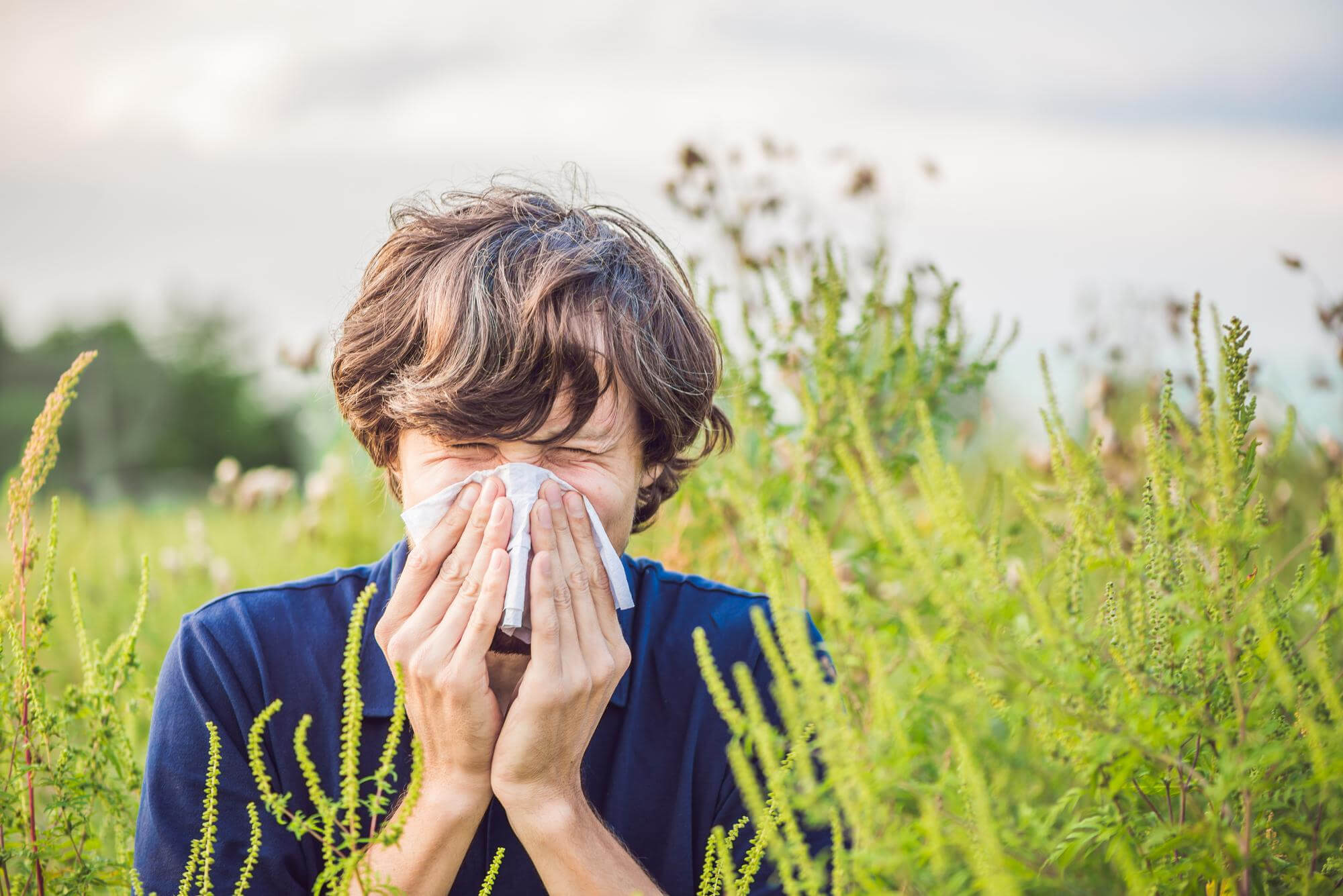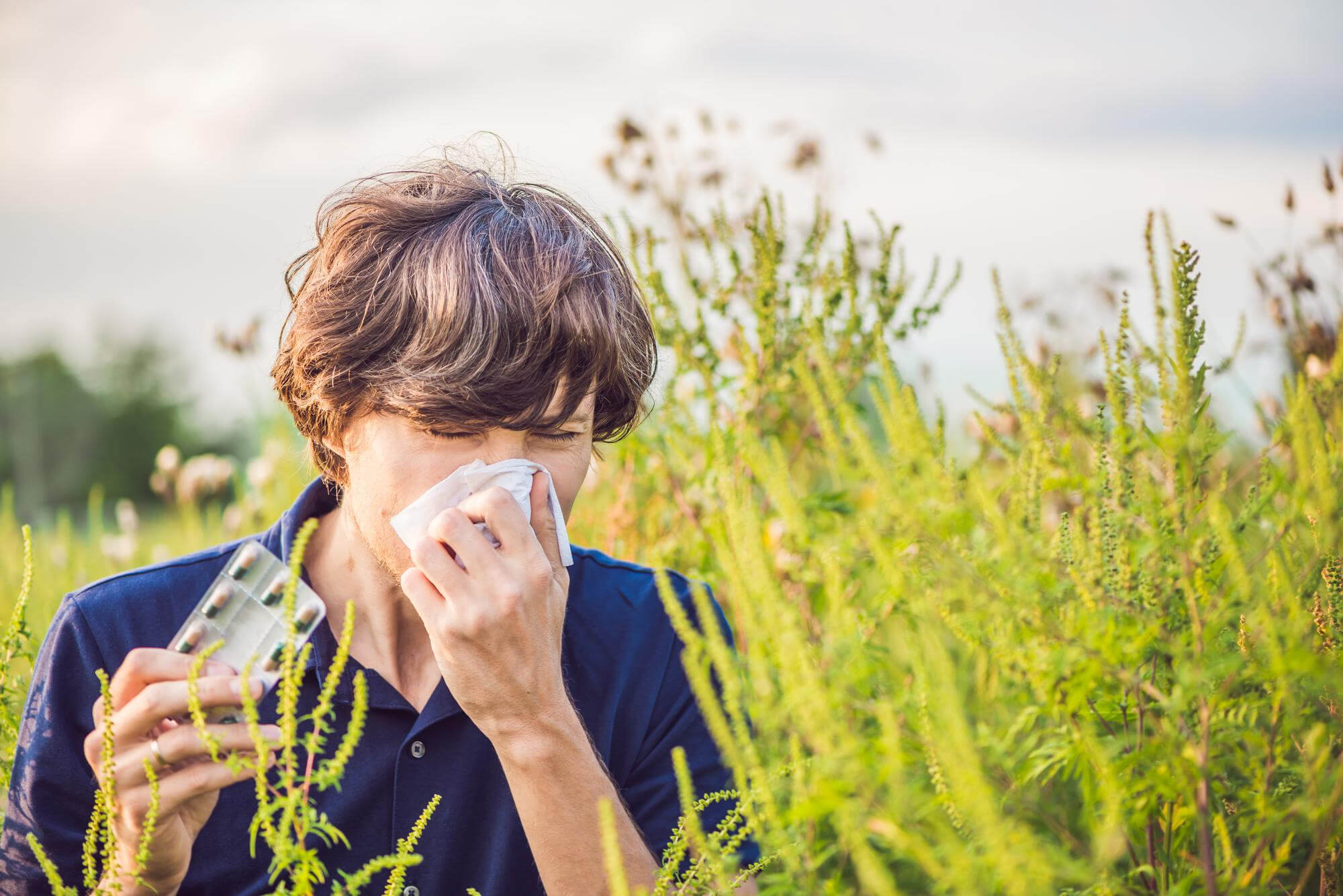Grass allergy: prevention and treatment guide


Eva Zakharova
Grass allergy is a common phenomenon that many people encounter. It can occur with weeds, meadow, and cereal grasses, as well as with mown grass. The main cause of such a reaction is sensitivity to certain proteins contained in plant pollen. It is important to know which grasses can cause allergies in order to determine the appropriate treatment and prevention strategy.
Causes of grass allergy
Grass allergy occurs due to increased sensitivity of the immune system to certain proteins in plant pollen. The risk of developing a grass allergy is higher in people with a hereditary predisposition, as well as in those who are exposed to allergens for an extended period of time.
Symptoms of grass allergy

Grass allergy symptoms can manifest in various forms, ranging from mild discomfort to serious complications. The main symptoms of grass allergy include:
- itching and redness of the eyes;
- runny nose, nasal congestion, and sneezing;
- itching in the nose and throat;
- cough and difficulty breathing;
- skin rash;
- in children, more pronounced symptoms such as asthma or atopic dermatitis may occur.
Types of pollen allergy
Grass allergy can be seasonal or year-round, depending on when contact with allergens occurs.
Seasonal grass allergy
Seasonal grass allergy, also known as pollen allergy, usually develops during the warm months when plants begin to bloom and produce pollen. Most often, allergies occur to weeds such as quackgrass, ragweed, and plantain.
Year-round grass allergy
Year-round grass allergy can develop due to constant contact with allergens, for example, when working in greenhouses or on farms. In such cases, allergies can occur to any type of grass.
Grass allergy diagnosis

To determine a grass allergy, a specialist conducts a comprehensive examination, including analysis of medical history, skin tests, and immunoassay (ELISA).
Analyzing the medical history helps the doctor gather information about the symptoms, their duration, and their connection to specific factors, such as contact with grass. The doctor may also ask questions about the presence of allergies in close relatives, which can help identify a possible hereditary predisposition.
Skin tests are a standard method for diagnosing grass allergy. During testing, small amounts of allergens are applied to the skin, and the body's reaction is observed. If redness and itching occur, this indicates the presence of an allergy to a specific allergen.
Enzyme-linked immunosorbent assay (ELISA) is a laboratory method that allows determining the level of IgE class antibodies produced by the body in response to contact with allergens. This test helps the doctor accurately identify which grasses may cause an allergy.
Grass allergy treatment

Grass allergy treatment includes the use of allergy medications, immunotherapy, and allergen-specific immunotherapy (ASIT).
Allergy medications
Among the medications for grass allergy, the following groups can be distinguished:
- Antihistamines (Loratadine, Cetirizine, Fexofenadine, Desloratadine, Levocetirizine) help reduce allergy symptoms such as itching, runny nose, and nasal congestion. They block the action of histamine - a substance that causes allergic reactions.
- Corticosteroids (Betamethasone, Prednisolone, Beclomethasone, Fluticasone, Mometasone) are anti-inflammatory drugs that help reduce swelling and itching. They can be used in the form of ointments, creams, nasal sprays, or tablets.
- Mast cell membrane stabilizers prevent the release of inflammatory mediators, such as histamine, from immune system cells. They can be used to reduce grass allergy symptoms.
Immunotherapy
Immunotherapy involves the introduction of small doses of the allergen into the body with the aim of gradually accustoming the immune system to this substance. This method can be effective in reducing grass allergy symptoms for an extended period.
Allergen-specific immunotherapy (ASIT)
ASIT is one of the most effective methods of treating grass allergy. During the therapy, the patient is given small doses of the allergen, which allows the body to gradually adapt to it and reduce sensitivity to the allergen.
Grass allergy prevention

For prevention, it is important to follow recommendations for home care, diet, and avoiding contact with allergens.
Home care tips
To reduce the risk of grass allergy, it is recommended to:
- close windows in the house during plant flowering periods;
- perform regular damp cleaning;
- use air purifiers with HEPA filters;
- wash bed linen and clothing at high temperatures.
Dietary recommendations
With a grass allergy, it's important to pay attention to your diet, as some foods can cause cross-reactivity. To avoid this, it's better to make a list of what you can't eat and discuss it with your doctor.
Avoiding contact with allergens
To prevent contact with allergens, it is recommended to:
- limit outdoor time during grass flowering periods;
- use sunglasses and masks when going outside;
- take a shower immediately after returning home.
Grass allergy in children

Grass allergy in children has its own peculiarities and may manifest at an earlier age.
In children, grass allergy can manifest with more pronounced symptoms, such as atopic dermatitis or asthma. It is important to see a doctor in a timely manner for proper diagnosis and treatment.
Treatment and prevention of grass allergy in children
Treatment of grass allergy in children is carried out taking into account age-specific features and under the supervision of an allergist. Adapted immunotherapy or selection of safe medications to relieve symptoms may be used. Allergy prevention in children also includes following recommendations on diet, home care, and avoiding contact with allergens.
Grass allergy is a common disease that can cause many unpleasant symptoms. For successful treatment and prevention of allergy, it is important to identify which grasses may cause an allergy and consult an allergist for individual therapy. Following recommendations on diet, home care, and avoiding contact with allergens will help reduce the risk of allergy development and improve the quality of life.
New materials
Popular Articles
We recommend reading
Contact us in the Contact Us section to ask questions, offer ideas, or for more information about our allergy resource.
Our articles are your trusted source of allergy knowledge. Learn how to make life with allergic reactions easier on our specialized portal.
©
Lechenie-Allergii.com. All rights reserved.
© Lechenie-Allergii.com. All rights reserved.
The information on this site is for informational purposes only and is not a substitute for professional medical advice. We recommend consulting with qualified medical professionals for accurate information and advice.
 English
English  Українська
Українська  Русский
Русский 









